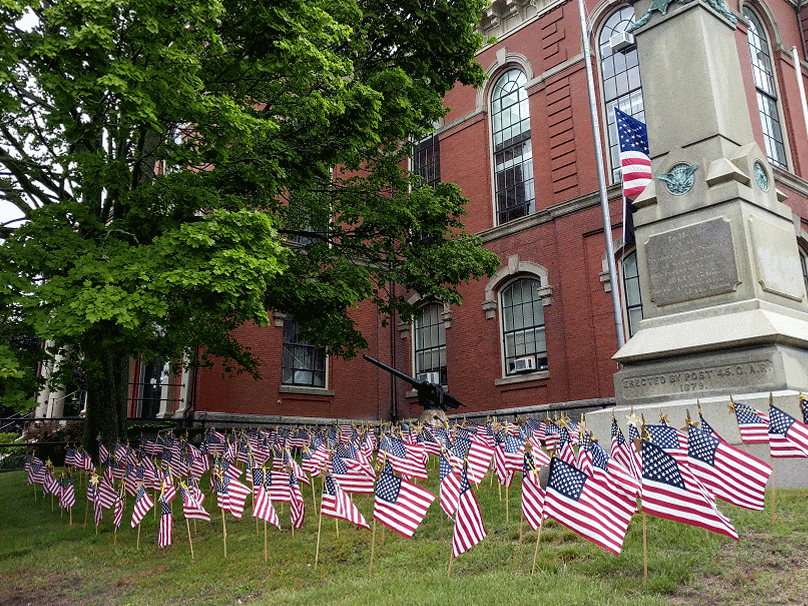
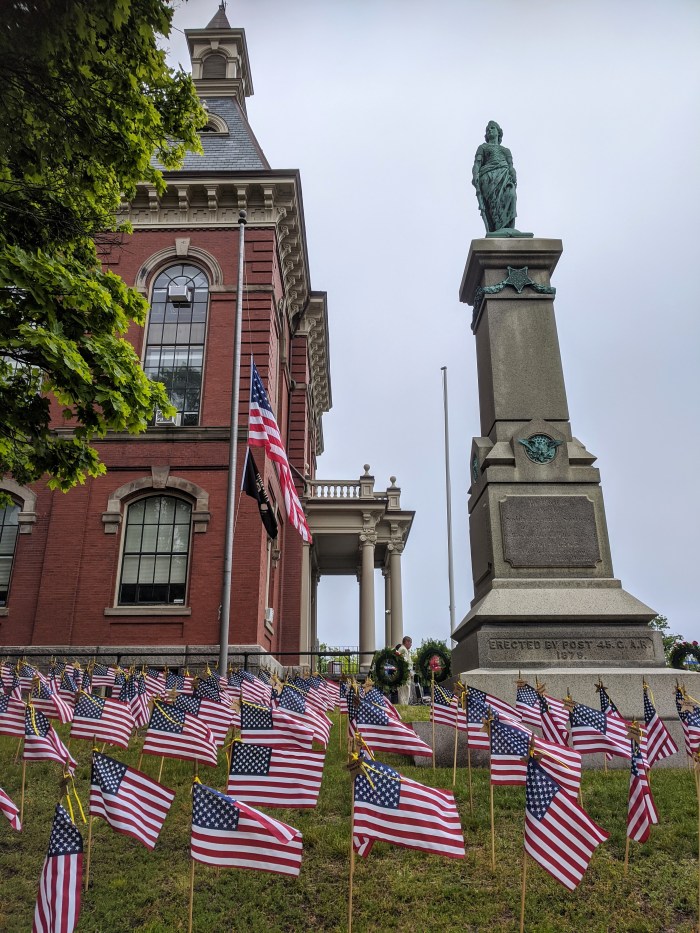
Pat Dalpiaz and Joey LIVE streamed the ceremony at City Hall
Jim Dalpiaz played taps.

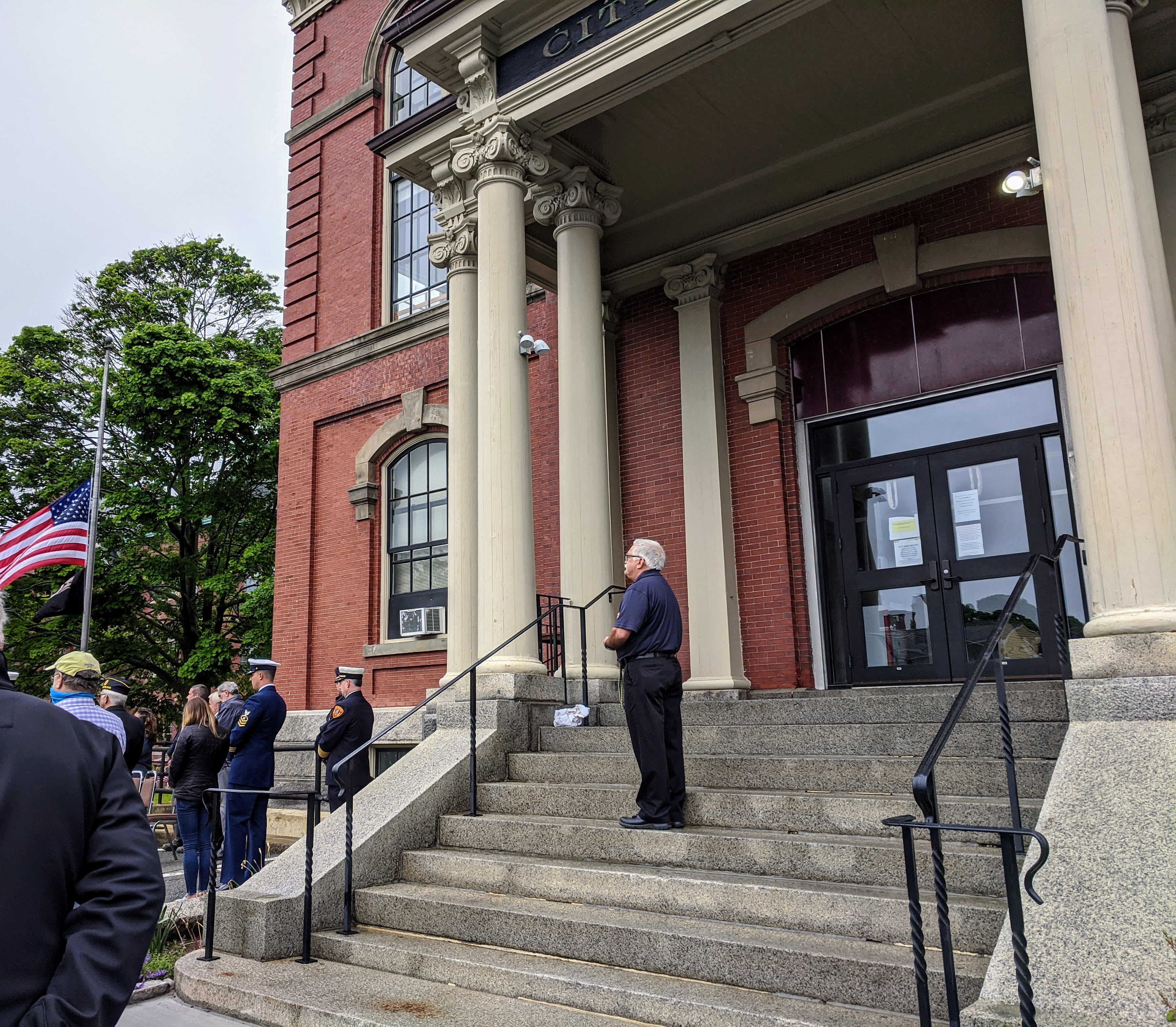
In Flanders Fields.
was penned by Lieut. Col. John M. McCrae, Canadian physician and soldier, during the First World War, following the first German chemical attack, early spring 1916, Second Battle of Ypres. Bonescattered torn and trampled fields germinated scarlet poppies and so many, many simple white crosses. The fallen went from war to peace.
In Flanders Fields was first published in London Punch December 1915. By March 1916, American newspapers carried the poem ( including Norwich Bulletin, and KY Citizen, June, 1916) McCrae died in France in 1918, and there rests in peace and vitality.
The common poppies sway by design, are tall and reaching; their architecture flings the seeds further and their flowers appear to open and close, intermittent as firecracker displays. (Individual flowers bloom for (mostly) a day, but the one plant will produce hundreds of flowers over the season.) The large translucent blooms indeed blow, glow and grow. Those adjectives in the first line opener of McCrae’s poem have swapped around in different versions. “Blow” it is.
I wrote about McCrae in a prior post:
“Veteran of the Boer War and WWI, a teacher, and doctor, Canadian John McCrae wrote In Flanders Fields in the spring of 1915 while still at the bloody battlefront in Ypres, Belgium, in an area known as Flanders. The Germans had already used deadly gas. Dr. McCrae had been tending to hundreds of wounded daily. He described the nightmare slaughter: “behind it all was the constant background of the sights of the dead, the wounded, the maimed.” By this time he had already devoted his life to art and healing. He couldn’t save his friends. How could anyone? Twenty years prior, he sketched poppies during his medical residency in Maryland. He published poems and stories by the time he was 16. I’m not surprised he noticed the brilliant fragile petals and horror. He wrote for those who couldn’t speak and those who had to see. Meningitis and pneumonia killed him January 1918 after several months battling asthma and bronchitis. His poem and the emblematic poppy continue to inspire and comfort…”
Catherine Ryan, 2016 GMG
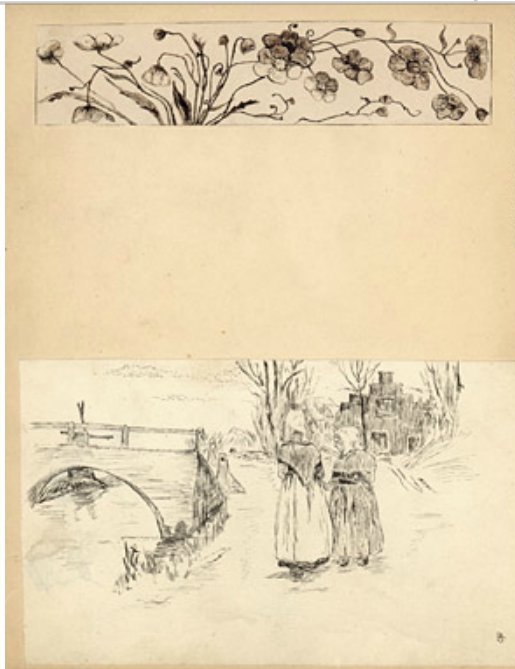
Poppies are sown in poetry volumes: John Dunne (the opium poppy species); John Keat’s, too (A thing of Beauty is a joy forever). Robert Burns wrote Tam o’Shanter in 1791. Their poetry and poppy stanzas no doubt were familiar and studied by soldier scholar poets like McCrae:
But pleasures are like poppies spread,
You seize the flow’r, its bloom is shed;
Or like the snow falls in the river,
A moment white—then melts forever;
Or like the borealis race,
That flit ere you can point their place;
Or like the rainbow’s lovely form
Evanishing amid the storm.
Nae man can tether time or tide:
The hour approaches Tam maun ride,—
That hour, o’ night’s black arch the key-stane
That dreary hour he mounts his beast in;
And sic a night he taks the road in,
As ne’er poor sinner was abroad in.
Robert Burns stanza, Tam o’Shanter, 1791
McCrae’s contemporaries wrote of the characteristic scarlet poppies (papaver rhoeas) and crosses as well.
Joyce Kilmer
Joyce Kilmer (American, born and studied NJ) poem “Rouge Bouqet” vaulted poppies’ sobriquet. He was killed in France 1918.
In a wood they call the Rouge Bouquet
There is a new-made grave to-day,
Build by never a spade nor pick
Yet covered with earth ten metres thick.
There lie many fighting men,
Dead in their youthful prime,
Never to laugh nor love again
Nor taste the Summertime.
For Death came flying through the air
And stopped his flight at the dugout stair,
Touched his prey and left them there,
Clay to clay.
He hid their bodies stealthily
In the soil of the land they fought to free
And fled away.
Now over the grave abrupt and clear
Three volleys ring;
And perhaps their brave young spirits hear
The bugle sing:
“Go to sleep!
Go to sleep!
Joyce Kilmer
Alan Seeger
poet and Harvard graduate, was born in New York City and joined the foreign legion after college. (His brother was Charles Seeger and yes, nephew Pete.) He was killed in France and buried in one of the mass graves Kilmer wrote about.
Don’t limit remembrance to the passing. Seeger’s poem centers on the glories of life. “That other generations might possess— From shame and menace free in years to come—A richer heritage of happiness,” and ‘Be mindful of the men they were.”
Champagne, 1914-15, Harvard Volunteers in Europe
In the glad revels, in the happy fêtes,
When cheeks are flushed, and glasses gilt and pearled
With the sweet wine of France that concentrates
The sunshine and the beauty of the world,
Drink sometimes, you whose footsteps yet may tread
The undisturbed, delightful paths of Earth,
To those whose blood, in pious duty shed,
Hallows the soil where that same wine had birth.
Here, by devoted comrades laid away,
Along our lines they slumber where they fell,
Beside the crater at the Ferme d’Alger
And up the bloody slopes of La Pompelle,
And round the city whose cathedral towers
The enemies of Beauty dared profane,
And in the mat of multicolored flowers
That clothe the sunny chalk-fields of Champagne.
Under the little crosses where they rise
The soldier rests. Now round him undismayed
The cannon thunders, and at night he lies
At peace beneath the eternal fusillade…
That other generations might possess—
From shame and menace free in years to come—
A richer heritage of happiness,
He marched to that heroic martyrdom.
Esteeming less the forfeit that he paid
Than undishonored that his flag might float
Over the towers of liberty, he made
His breast the bulwark and his blood the moat.
Obscurely sacrificed, his nameless tomb,
Bare of the sculptor’s art, the poet’s lines,
Summer shall flush with poppy-fields in bloom,
And Autumn yellow with maturing vines.
There the grape-pickers at their harvesting
Shall lightly tread and load their wicker trays,
Blessing his memory as they toil and sing
In the slant sunshine of October days…
I love to think that if my blood should be
So privileged to sink where his has sunk,
I shall not pass from Earth entirely,
But when the banquet rings, when healths are drunk,
And faces that the joys of living fill
Glow radiant with laughter and good cheer,
In beaming cups some spark of me shall still
Brim toward the lips that once I held so dear.
So shall one coveting no higher plane
Than nature clothes in color and flesh and tone,
Even from the grave put upward to attain
The dreams youth cherished and missed and might have known;
And that strong need that strove unsatisfied
Toward earthly beauty in all forms it wore,
Not death itself shall utterly divide
From the belovèd shapes it thirsted for.
Alas, how many an adept for whose arms
Life held delicious offerings perished here,
How many in the prime of all that charms,
Crowned with all gifts that conquer and endear!
Honor them not so much with tears and flowers,
But you with whom the sweet fulfilment lies,
Where in the anguish of atrocious hours
Turned their last thoughts and closed their dying eyes,
Rather when music on bright gatherings lays
Its tender spell, and joy is uppermost,
Be mindful of the men they were, and raise
Your glasses to them in one silent toast.
Drink to them—amorous of dear Earth as well,
They asked no tribute lovelier than this—
And in the wine that ripened where they fell,
Oh, frame your lips as though it were a kiss.
Alan Seeger
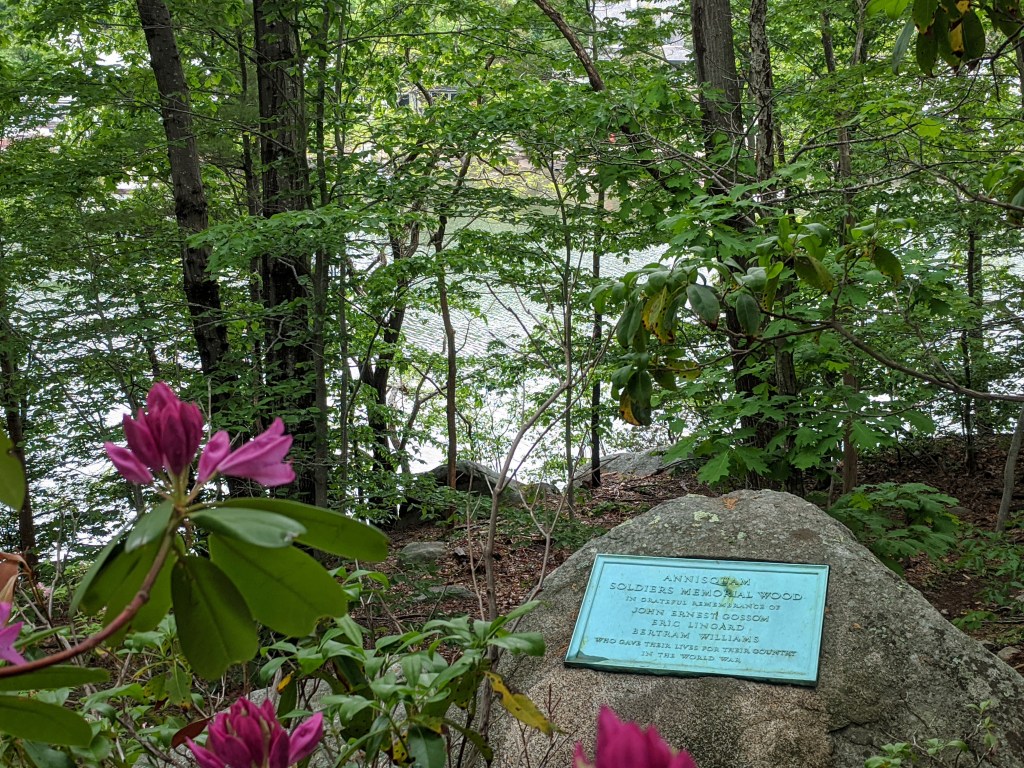
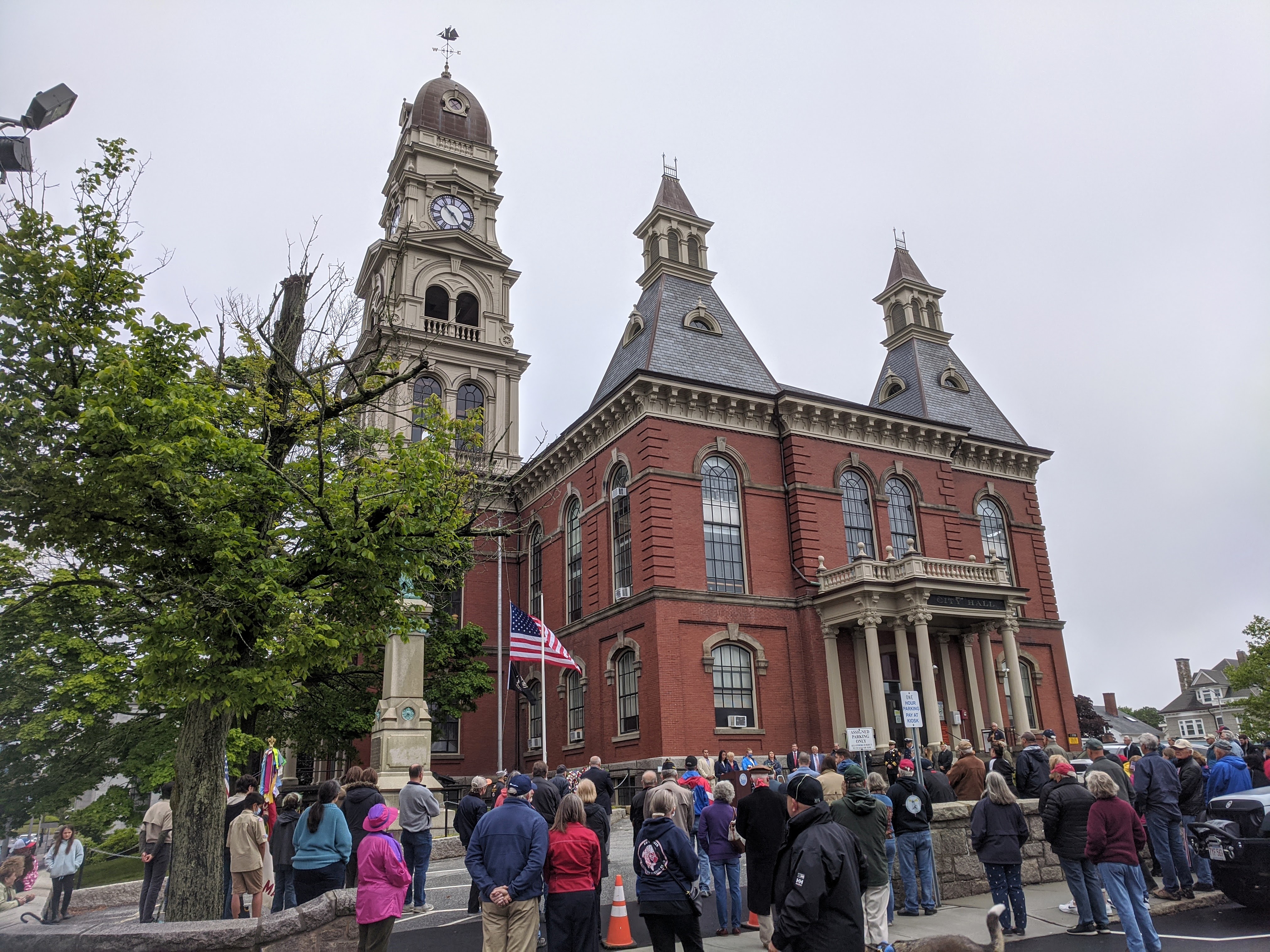
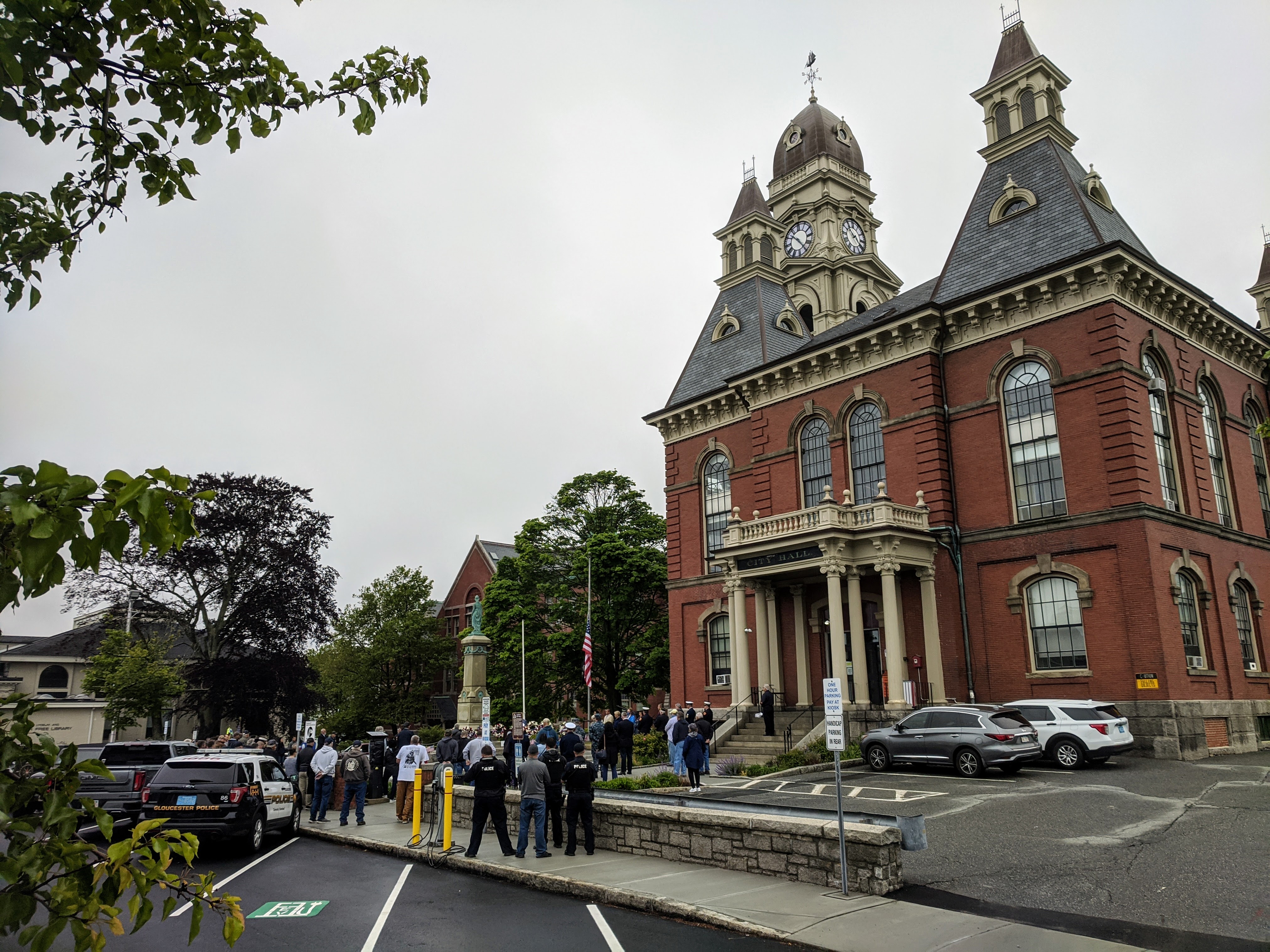

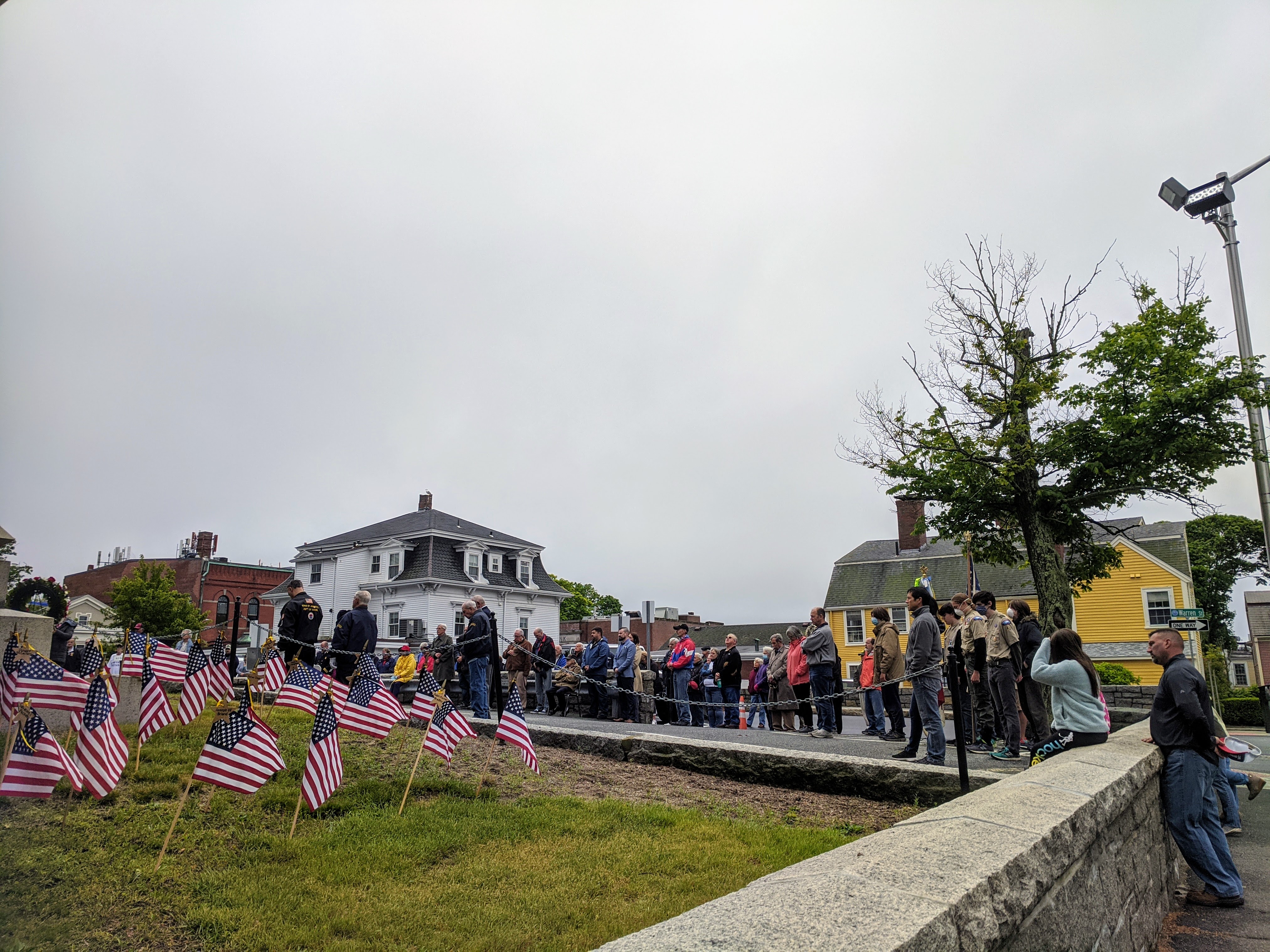

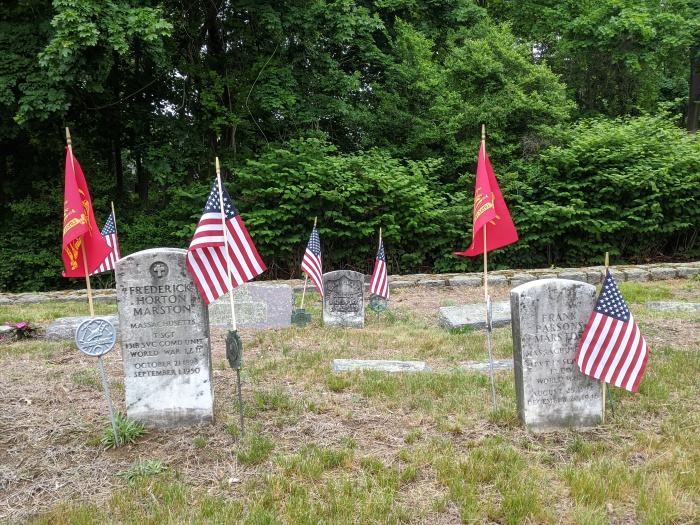

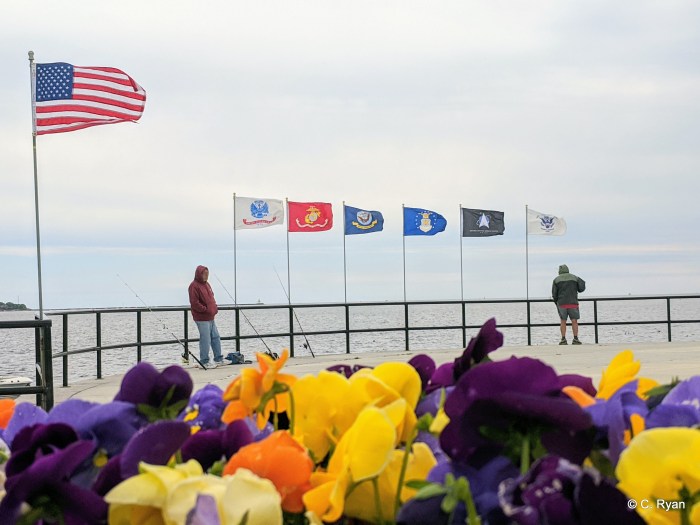




One thought on “So beautiful how Cape Ann Veterans Services, caretakers, and volunteers honor the fallen- placing flags citywide and Memorial Day ceremony #GloucesterMA #CapeAnn”